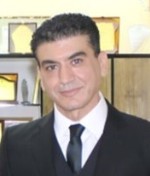FEATURED PAPER
By Youcef J-T Zidane, PhD
Algeria
Abstract
This paper proposes a comprehensive re-examination of the concepts of Project Life Cycle (PLC) and Project Duration (PD) through the integration of logic models, systems thinking, and stakeholder perspectives. Beginning with a critique of conventional linear representations, the paper introduces an evolved logic model that reflects the sequential, interdependent, and cyclical nature of project processes. A generic project life cycle model is developed by superimposing this logic model onto traditional PLC frameworks, introducing the novel concept of “Throughputs” to capture the dynamic flow of inputs and outputs during project execution. The model can be applied to large-scale projects, highlighting the divergent interpretations of PLC and PD among key internal stakeholders—including executives, technical managers, marketing personnel, contractors, and subcontractors. Each stakeholder’s engagement point and role within the project life cycle shapes their understanding of the project’s duration and scope. By presenting a multi-layered, time-bound, and stakeholder-sensitive model, this study contributes a new lens for analyzing project performance and coordination. The findings underline the importance of aligning perceptions and expectations across stakeholders to enhance project delivery outcomes.
Keywords: Project Life Cycle (PLC); Project Duration (PD): Logic Model; Stakeholder Perspective; Throughputs.
- Introduction
The concepts of Project Life Cycle (PLC) and Project Duration (PD) are fundamental to the fields of project and program management. They serve as lenses through which planners, stakeholders, and evaluators conceptualize the beginning, middle, and end of a project’s journey. Yet, despite their ubiquity in academic literature and professional guidelines, there remains a significant divergence in how these concepts are understood and applied across industries, institutions, and individuals. This divergence is not merely semantic—it has profound implications for planning, coordination, performance measurement, and stakeholder alignment.
Over the past decades, scholars and practitioners have attempted to standardize the PLC by offering linear, phase-based frameworks. These often begin with ideation and conclude with project closeout or operational transfer (PMI, 2013; Turner, 2009). While these models have offered valuable structure, they fall short of reflecting the real-world complexity inherent in large-scale public or infrastructure projects. Increasingly, researchers argue that project management must evolve from its traditional technical-managerial roots to embrace systems thinking and contextual analysis (Winter et al., 2006; Samset & Volden, 2016).
A central issue lies in the conceptual ambiguity surrounding PLC and PD. Although often used interchangeably, these terms denote distinct, yet interrelated, ideas. The Project Life Cycle refers to the phases a project passes through from initiation to closure, regardless of the duration of each phase. In contrast, Project Duration refers to the temporal span between specific start and end points, which may vary significantly based on stakeholder perspective, project type, or governance structure (Zidane et al., 2015; 2016; 2018). This paper contends that without a nuanced understanding of these distinctions, project coordination and evaluation may be undermined, particularly in large, multi-stakeholder environments.
To address this gap, the present paper builds upon and extends the logic model framework—a tool that has its roots in evaluation science (Bennett, 1975; United Way of America, 1996; OECD, 2002). Logic models are typically used to depict the causal relationships between inputs, activities, outputs, outcomes, and impacts. However, traditional logic models treat activities as a black box and offer limited guidance for project structuring. By integrating the logic model with the project life cycle, this paper proposes a more dynamic and cyclical representation of project processes. The newly developed framework introduces the concept of “Throughputs,” defined as the emergent, intermediate flows that mediate between planned inputs and delivered outputs. This concept is borrowed from systems engineering and strategic management, where throughput refers to the transformation process that adds value (Besanko et al., 2010; Blanchard & Fabrycky, 2011).
More…
To read entire paper, click here
How to cite this paper: Zidane, Y. J-T. (2025). Rethinking project Boundaries; PM World Journal, Vol. XIV, Issue VI, June. Available online at https://pmworldlibrary.net/wp-content/uploads/2025/06/pmwj153-Jun2025-Zidane-Rethinking-Project-Boundaries.pdf
About the Author

Sr. Youcef J-T. Zidane
Algiers, Algeria
![]()
Youcef J-T. Zidane, Ph.D., MSc, MTech, Ing., Senior Research Scientist | Senior Consultant, is an accomplished Senior Research Scientist and Consultant with a distinguished track record in managing large-scale projects and advancing interdisciplinary research at the intersection of management, systems thinking, and sustainability. He brings over two decades of global experience spanning industry and academia, with particular expertise in complex project delivery, organizational systems, and strategic innovation.
Youcef earned his Baccalaureate in Mathematics from Aokas High School in Bejaia, followed by a degree in Electronics Engineering from the University of Boumerdes (formerly INELEC) in 2002. He completed a Master of Technology (MTech) from MUT, Germany in 2003, and later pursued a Master of Science (MSc) in Management at the Norwegian University of Science and Technology (NTNU), where he also earned his Ph.D. in Project and Quality Management in 2017.
Between 2003 and 2010, he led and delivered numerous high-stakes ICT projects across multiple countries, managing a combined portfolio exceeding USD 3 billion. His strategic oversight and execution capability were critical in delivering these initiatives on time and within scope, often under complex and dynamic conditions.
In parallel with his professional engagements, Youcef has made substantial contributions to the research community. He has served as a Senior Researcher at NTNU/SINTEF, Scandinavia’s largest—and one of the world’s foremost—research institutes. Currently, he is based at a national research center in Algeria and serves as a guest Senior Researcher at CAREED, University of the West of Scotland.
A holistic scientist aligned with the systems school of thought, Youcef’s research interests encompass organization science, management (including strategy, quality, and project/program management), sustainability, innovation systems, systems thinking, applied philosophy, governance, and leadership. He is widely recognized for his ability to synthesize diverse disciplinary perspectives to tackle multifaceted organizational and societal challenges.
Driven by a passion for sustainable development and institutional excellence, Youcef continues to contribute to both academic scholarship and industry advancement. His work supports the development of resilient governance models and innovative management practices that are deeply responsive to global complexity and local realities.
Youcef can be contacted at zidaneyoucefjt@gmail.com









